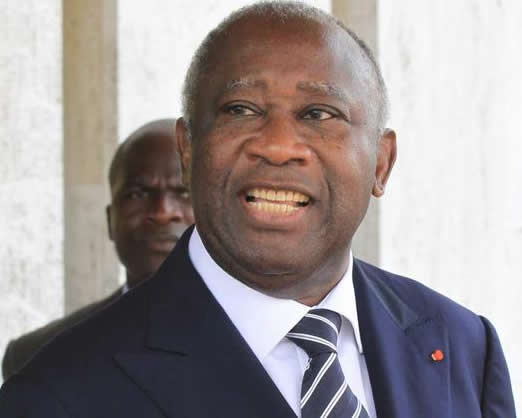 The former President of Cote d’Ivoire, Laurent Gbagbo, who has been freed by the International Criminal Court (ICC) in The Hauge, is to stay in Belgium, one of the conditions of his release.
The former President of Cote d’Ivoire, Laurent Gbagbo, who has been freed by the International Criminal Court (ICC) in The Hauge, is to stay in Belgium, one of the conditions of his release.
This was agreed by the Belgian government after the Appeals Chamber unanimously released Mr Gbagbo and one of his former ministers, Charles Blé Goudé, on February 1.
The Office of the Prosecutor (OTP) said it had been “amendable” to the release of the two men “with a set of conditions attached”.
“These conditions would be to ensure” the pair “would be available before the Court should the trial proceedings against them continue”.
It was not known which country would take Mr Blé Goudé.
The conditions have been placed on them because the OTP said it was going to appeal against the January 15 decision to acquit the two – Mr Gbagbo and Mr Blé Goudé, of crimes against humanity allegedly committed in Cote d’Ivoire between 2010 and 2011 during the country’s civil war.
“At this point, the prosecution team is still waiting for the Judges of Trial Chamber I to provide their written decision detailing the legal reasons for their decision to acquit,” the OTP said in a statement.
“Only after we have had the opportunity to carefully examine and analyse their reasoning will my Office make a decision on whether to appeal.”
One international justice lawyer in London, speaking to the Ghana News Agency (GNA) said: “This is just a forlorn move by the prosecutor, given that the ICC acquitted Mr Gbagbo and Mr Blé Goudé because the judges found the prosecution’s case ‘exceptionally weak.
“What new evidence will the prosecution come up with that will sway the ICC judges to call the two men back to face trial?”
After their acquittal on January 15, their lawyers expected them to be released.
But they were however kept in detention, which legal experts said was unprecedented.
The Appeals Chamber ordered that they be detained until the appeal by the OTP was heard on February 1.
The justice lawyer said: “Notably, the prosecutor, Fatou Bensouda, had not been to any of the final hearings and judgement.
“The OTP is not doing well, and how did they think they could get away with this?”
Thijs Bouwknegt, a Dutch historian and former journalist, has, since 2006, attended and covered all ICC (pre-) trials in The Hague.
Writing for JUSTICEINFO.NET on January 31, he said of the Gbagbo and Blé Goudé case: “From the beginning, the prosecution had built its crimes against humanity case on anonymous hearsay evidence from NGO reports and press articles.
“Such pieces of evidence may serve as first drafts of history, sketch context and provide leads, but they cannot, wrote the pre-trial chamber in June 2013, ‘in any way be presented as the fruits of a full and proper investigation.’
“In a somewhat unexpected move of judicial lenience, the same pre-trial chamber…gave the OTP five extra months to collect evidence that would withstand the lowest threshold of legal scrutiny required to confirm the charges.
“But the writing on the wall was clear of what was going to happen if the prosecutor could not deliver,” Mr Bouwknegt added.
Source: GNA























